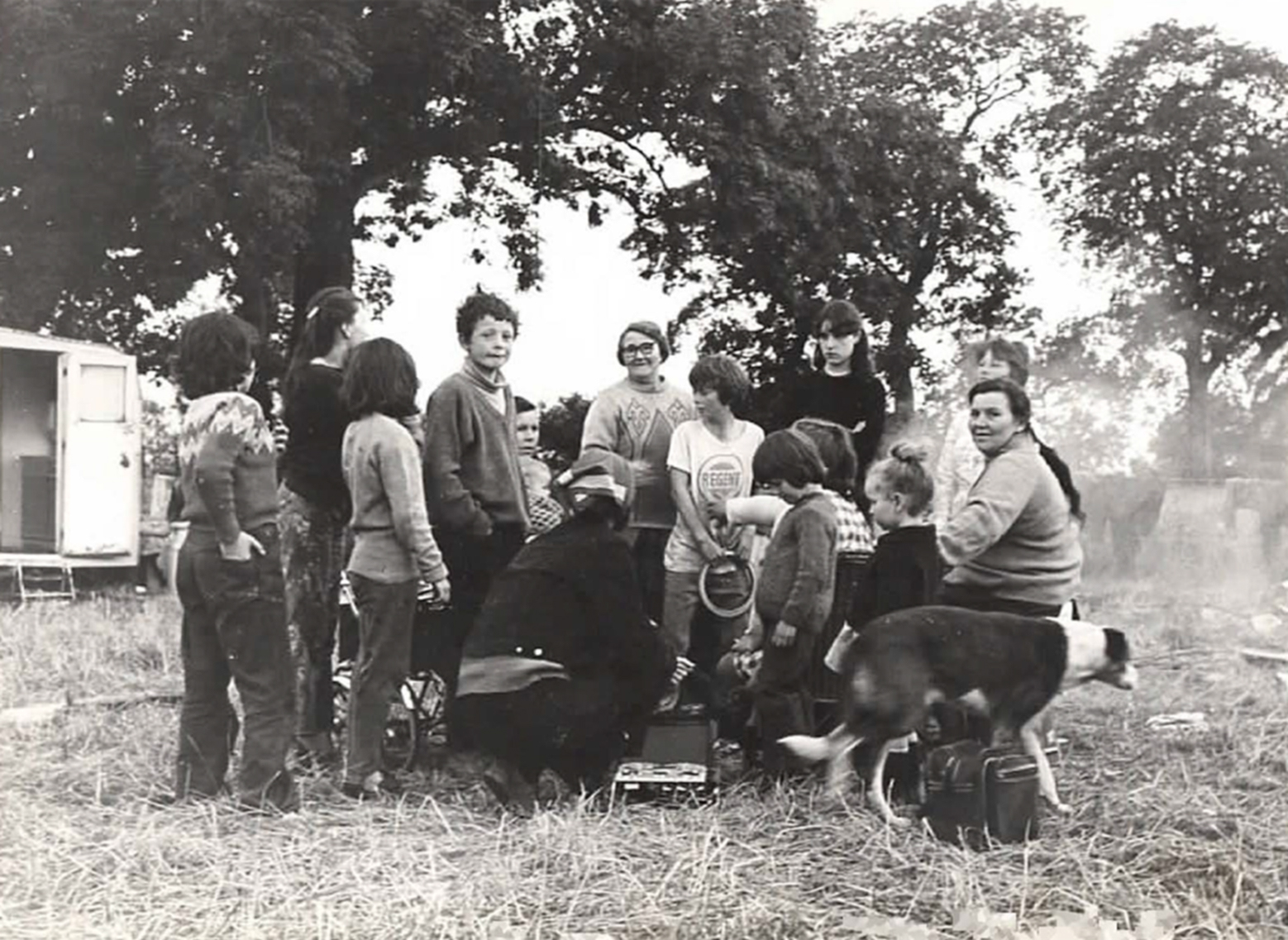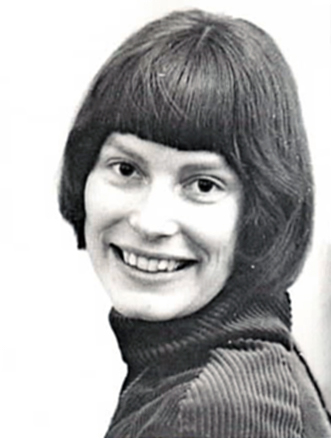Eachdraidh-beatha
Marita Kruijswijk is a Dutch folk musician from Amsterdam, now living in Friesland.
Growing up in a musical family, Marita enjoyed piano, flute and dance lessons, and would go on to study musicology at the University of Amsterdam after secondary school. Following her bachelors study of classical music, she shifted focus to ethnomusicology, and was eventually inspired by a performance of a Scottish folk group to go to Scotland to conduct fieldwork.
Marita’s ethnomusicology teacher, Ernst Heins, was in contact with Hamish Henderson of the School of Scottish Studies, and so it was arranged that she and fellow musicology student, Rokus de Groot, would conduct six weeks of fieldwork under Hamish’s supervision. The pair arrived in Edinburgh in the summer of 1971:
“Hamish Henderson gave us addresses from all kinds of musicians, and he also lent us a tent in case we couldn’t find an overnight stay. So we visited many musicians, usually at their homes and made recordings of their music with a tape recorder. But Hamish had also advised us to go to a farm where Travellers lived in caravans and picked raspberries as seasonal workers. We then decided to pick raspberries too, because in the evenings and especially on weekends we could easily get in touch then with the Travellers and we also could be with them when they started to make music. During one of the weekends there was a sing around that I would never forget. At a certain moment I was told: now it’s your turn and we would like to hear a song from your country now. I didn’t expect that at all and all I could think of was to sing a simple Dutch children’s song.”
In addition to recording songs and instrumental music from many Travellers in the berryfields of Blairgowrie, Marita and Rokus called on celebrated tradition bearer Belle Stewart and family while in the area. Moving further north, they visited John ‘Molecatcher’ McDonald of Pitgaveny, who performed many songs with his characteristic melodeon accompaniment. Performers in Tain, including Robert Macrae and Mararet 'Peggy' MacLeod, contributed songs and pipe/fiddle music, while many Gaelic songs were recorded in Cromarty and Muir-of-Ord from the likes of Peter Dalgetty and Belle Anne MacAngus . In total, Marita and Rokus made a great many recordings - 26 reel-to-reel tapes - over much of the north of Scotland.

Marita recalls:
“When I returned to The Netherlands after the fieldwork, I was so enthusiastic about traditional Scottish music that I joined a folk group that played and sang this music. The name of that group, which consisted of 4 musicians, was ‘Fowre’. And what was new for me: I had to sing and play everything by heart in that group. […] I often thought of those Travellers in Scotland who’d expected me to sing a Dutch song. My graduation thesis - 'De mythe van het volkslied’ ('The myth of the folk song') was about the limited attention that traditional Dutch songs received in the media and in music education.”
Marita began looking for sources of old traditional Dutch folk music and formed the group 'De Perelaar' with likeminded musicians. She also became more and more interested in old Dutch folk dances and started playing in another group, called 'De Eerste Hollandse Dansband' (The First Dutch Dance Band). In the early 1980s, Marita formed a duo with her life partner, Marian Nesse, who was an accomplished accordionist. Together, they performed as ‘Dames Dubbel’ and later ‘Marianta’, and later released a 2005 book ’Nederlandse Jaarfeesten en Hun Liederen’, about the history, traditions and songs of the Dutch annual festivities.
Marita and Marian’s other collaborations include ‘Froufolk’ (a mix of Dutch folk music and cabaret), ‘De Binnenste Buiten Dansband’ (The Inner-Outer Dance Band), ‘Kat yn ’t Seil’ (Frisian songs), ‘Kajto’ (song in Esperanto), ‘Kapriol!’ (Dutch dance tunes for balfolk), ‘Het Vrijstatig Volkje’ (interactive historical street theatre) and ‘Altegaer’ (Dutch music and world music). See: www.marianta.nl
